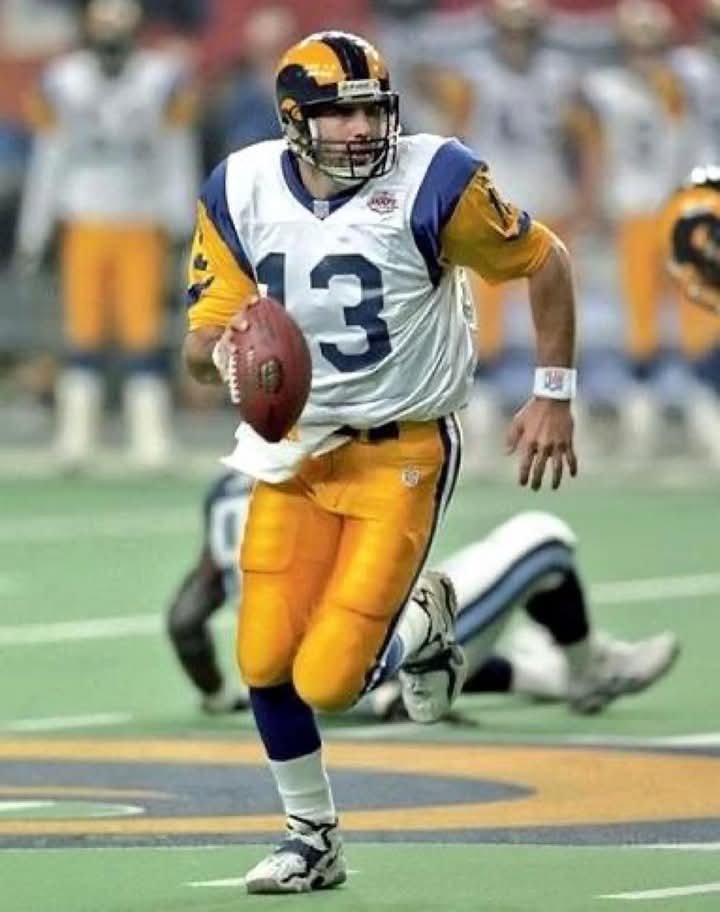From Grocery Bags to Super Bowls: The Unbelievable Rise of Kurt Warner
There was a time when Kurt Warner wasn’t a quarterback.
He was a stock boy at a Hy-Vee grocery store in Cedar Falls, Iowa—making $5.50 an hour.
He had gone undrafted out of Northern Iowa. Cut by the Packers before he ever played a snap. His dream felt over before it ever really began.
Most guys quit after that.
Kurt didn’t.
He kept training. Kept throwing. Kept believing. And eventually, he found a job playing football in the Arena League, bouncing passes off walls and putting up video game numbers just to stay in the game.
Then came NFL Europe. Then the St. Louis Rams—where he sat on the bench behind Trent Green in 1999. He was a backup, again. A feel-good training camp story, but nothing more.
Then everything changed.
Green got hurt. Warner got the call.
And suddenly, the guy who bagged groceries was lighting up the NFL.
41 touchdowns.
Over 4,300 yards.
MVP.
Super Bowl champion.
In Super Bowl XXXIV, Warner threw for 414 yards—a Super Bowl record at the time—and delivered a game-winning strike to Isaac Bruce with under 2 minutes left. On the final play, the Rams made a goal-line stand for the ages. Victory.
Just months earlier, no one knew his name.
Now he was a Super Bowl MVP.
And what made it more incredible?
He never changed.
He gave credit to his teammates. To his faith. To the people who stuck by him when no one else did—especially his wife Brenda, who raised two children as a single mother, one of whom was blind and brain-injured, before Kurt came into their lives.
They had lived in near-poverty.
They had been told “no” more times than most people could count.
But they held on.
Warner would go on to take the Rams to another Super Bowl, and later, lead the Arizona Cardinals to their first-ever Super Bowl appearance. He made the Hall of Fame. He became an NFL Network analyst. A movie was even made about his life.
But none of it would’ve happened if he gave up after that first door slammed shut.
Or the second.
Or the tenth.
⸻
Kurt Warner’s story isn’t just about football.
It’s about what happens when you bet on yourself—when nobody else will.
It’s about the beauty of the long road.
And the magic that can happen when the world tells you no, and you say:
“Watch me.”

